“Sexless marriages are in the millions. It’s an epidemic,” says Dr. Doug Weiss, the psychologist who coined the term ‘intimacy anorexia’. Anorexia is an eating disorder in which you starve yourself of food, and intimacy anorexia is where you starve your partner of intimacy and are deprived of it yourself too.
Before we read about this addiction, its characteristics, impact, and recovery, it’s important to remember that addiction is a condition in which a person is unable to stop using a substance or engaging in a behavior. They need help and support in order to heal. A spouse of an anorexic shared in Intimacy Anorexia, a book written by Weiss, “My spouse does not offer, initiate, or invite” intimacy. Let’s understand why.
What Are The Characteristics Of Intimacy Anorexia?
Table of Contents
First, here’s the intimacy anorexia definition: It is an addiction where you actively withhold emotional, spiritual, and sexual intimacy from your long-term/committed partner. Most of what we know about this addiction is derived from Dr. Weiss’s decades-long research and his book on the subject. Based on it, here are some characteristics of intimacy anorexia:
- This addiction gets worse if left unaddressed
- Intimacy anorexia typically hinders the emotional development and well-being of the addict
- It entails extreme fear of rejection. So even though they want to experience intimacy, they can’t
- It aims to maintain emotional distance from the partner through deliberate and active withholding of intimacy
- Only an anorexic’s spouse/boyfriend/girlfriend (or maybe their kids) suffers the impact of intimacy anorexia
- It’s a repetitive behavior
- It is not defined by gender
- It can overlap with a person’s compulsive sexual behavior and both need to be worked on simultaneously
This list could also serve as an intimacy anorexia test. Weiss says that an anorexic “incurs loss after loss, but instead of getting sober to what is happening, they get more committed to the addiction.”
As per a study in 2022, 20.4 million Americans are living in sexless marriages, and 74.2% of these spouses end up divorcing each other. Not all of them experience intimacy anorexia, but it’s worth noting that lack of physical intimacy in relationships is quite common. So, if you’re facing a lack of marital intimacy, you’re not alone.
What are the Symptoms Of Intimacy Anorexia?
An addict of intimacy anorexia feels unsafe with the one they are in a relationship with. Any form of intimacy is perceived as a threat and a loss of control. We have compiled 20 symptoms of intimacy anorexia and how they manifest in a person.
1. No One Is as Busy as Intimacy Anorexics
They keep themselves busy in actual or mindless activities. Anything else is more important than their boo and building a healthy relationship with them. Tanya, an anorexic, shared in Weiss’s book, “I am actively anorexic when I sabotage occasions for emotional intimacy by paying more attention to the children, work, housework, television, or any other distraction.” Neighborhood meetings, volunteering activities, hours and hours on their phone, video games, or television, passion projects, visits to family and friends, travel – they will do it all to avoid intimacy with you.
2. The Reality Is Distorted and They Don’t Trust Their Loved One
They create the worst fantasies about their other half and according to Weiss’s book, they might think:
- “My partner is only being nice because they want sex”
- “They are buttering me up for money”
- “This is a scam, don’t trust them”
- “They’re going to hurt me”
- “They don’t care about me”
3. This Helps Them Justify Their Behavior and Maintain Their Positive Image

Since the partner is clearly ‘bad’ or is romantically manipulating them, the anorexic firmly believes that they are doing the right thing by hurting them emotionally and denying intimacy.
- They willfully misunderstand the other person’s intent
- They become the victim in this scenario
- They believe that flaws are weaknesses and must appear perfect
- They may keep busy with outside activities that are warm and caring, hence, no one thinks they could be harming their family to this degree
Virginia, a person dealing with decreased intimacy from their spouse, shared in the book, “Everybody thinks my spouse is a saint because he is a music teacher. What they don’t know is that he will not even help his own children with their music lessons at home.”
Related Reading: Sexless Marriage Effect On Husband – 9 Ways It Takes A Toll On Him
4. They Are Terrified of Rejection
An anorexic’s spouse shared in the book, “My husband withholds emotional and sexual intimacy when he perceives that I am rejecting him.” Avoiding intimacy is one of the key personality traits of intimacy anorexia.
A great deal of human behavior is influenced by the desire to avoid rejection as per a study. For a person with intimacy anorexia, it is the driving force behind their intimacy issues.
5. They Must Stay in Control
People afflicted by this addiction believe the more they can control all the internal and external variables, the better they can protect themselves. Because if they lose control, they risk vulnerability. As a result,
- They may pout and manipulate to get their way
- The other partner’s needs and feelings don’t matter
- They don’t compromise – they will talk, touch, have sex, spend quality time, address your needs, make gestures of love, etc. only when they want to
Related Reading: 13 Tell-Tale Signs Of Manipulation In A Relationship
6. One of the Saddest Intimacy Anorexia Symptoms Is That They Punish Their Partner
In an extreme case, Nancy, an anorexic’s romantic mate, shares in the book, “He stopped talking to me for about two years and wouldn’t even answer a question about the kids.”
- They use shame, anger, and silent treatment to control their significant other
- They choose to stay angry or shame their loved one rather than resolve the issue
- This can turn abusive and if you’re at the receiving end of it, you must immediately get professional help – it could be for both legal and mental health purposes
7. The Person With Intimacy Anorexia Blames the Partner for Everything
An addict of this condition shared in the book, “I find something that she is not doing well around the house and use that as the reason that I am upset.” Some people create situations where they can avoid sexual intimacy, and then blame their mate for not wanting sex. They would say, “You are always frustrated with me, so I don’t feel like having sex with you.” The reason for the justified frustration is swiftly overlooked as they say no to sex.
Related Reading: 8 Ways Blame-Shifting In A Relationship Harms It
8. They Make Their Partners Look Crazy
“When we talk, she will not look at me and she likes to play solitaire on her phone while we are in a discussion,” an affected partner shared in Weiss’s book. What are the characteristics of intimacy anorexia that make the patient’s partner look crazy? Here they are:
- The anorexic initiates intimacy and then withdraws suddenly, leaving the other person confused and frustrated
- They might promise intimacy and make plans for it and then cancel at the last minute
- They refuse to understand why their significant other is hurt – any empathy appears dangerous to them
- They keep up their good reputation on the outside, hence, the partner looks like the crazy wife/husband, making it impossible for the latter to understand how to deal with intimacy anorexia
9. They Could Have Compulsive Sexual Tendencies
In fact, Dr. Doug Weiss noticed patterns of intimacy anorexia while he was working with “sex addicts”. He realized that a sex addict could be addicted to intimacy anorexia as well. It’s important to note that sex addiction is a disputed condition since the book was published, but here are the traits of a person with compulsive sexual behavior:
- They might enjoy porn extensively or have an addiction to porn
- They have had tons of casual sex before their present relationship
- Weiss says, “For the intimacy anorexics, sex with a fantasy world of porn is perfect since it is without a relationship.”
- They might cheat in the relationship multiple times
- Contributing factors to this compulsion could be trauma, sexual abuse, and a family history of violence
- Sex compulsion and intimacy anorexia must heal simultaneously for complete recovery
10. They May Have Sex but Will Withhold Sexual Intimacy
A husband/wife avoiding intimacy and withholding sex in a relationship becomes the norm. But clearly, they are not averse to sex. So, this is what they do:
- They actively discourage or sabotage intimate situations with their partner, like romantic dinners, a sensual dance, holding hands, a deep conversation, etc
- They will create a negative association with sex for the partner to stop seeking intimacy
- Sex is an obligation, they don’t allow themselves to have an emotional experience with their sexual mate
- They could go months and years without having sex in the relationship
- They create the most inventive ways to avoid sex – pretending to be sick, working extra hours, suddenly remembering that the kids need help with the homework, or that a neighbor needs some work done in their yard, etc.
11. What Is Intimacy Anorexia? Withholding of Love From Your Partner
This means they have the love they know their partner needs but they deny it deliberately. “I love you” and its many forms, and gestures are hardly spoken or practiced in this relationship. There’s active withholding of emotional intimacy no matter how much their other half explains, requests, talks, understands and begs. The latter keeps wondering about the intimacy anorexia causes and how they can work on overcoming this barrier.
12. They Withhold Money From Their Partner
A sign of a controlling husband/wife is not trusting your spouse with money. Financial trust is a show of vulnerability, after all. So, what are the symptoms of intimacy anorexia that affect their partner’s financial well-being? Here they are:
- They keep a check on how much the other person spends
- Even if the expenditure is justified, they find it unnecessary
- They might spend on anything they want but they don’t want their partner to
Related Reading: What Is Financial Infidelity And How To Recognize It
13. They Withhold Their Authentic Selves
“If I want to know how he feels about something, I have to listen to him talk to his mom on the phone,” shares an anorexic’s partner in Doug Weiss’s book while discussing her experience of lack of intimacy in the marriage.
Their politics, their passions and hobbies, their childhood, what hurts them, what makes them happy – their partner is kept away from their real selves. This is an echo of emotional anorexia, where a person starves themselves of love and can’t receive nourishment from anyone, which, in turn, affects their partner.
14. They Withhold Spiritual Intimacy

The religious/spiritual faith of someone who has intimacy anorexia is too personal and they can’t afford to share that with their romantic mate. They also don’t wish to know what their partner’s faith means to them. The anorexics make sure they don’t pray together to skip emotional intimacy. Ironically, prayers for marriage restoration along with therapy is exactly what a couple like this needs.
15. They Don’t Express Concern or Curiosity
Their partner could win a Nobel Prize and the intimacy anorexic will not get to know. They both live like roommates and have emotionally disconnected lives and only interact when it comes to household tasks, food, bills, kids, etc.
The worst part is, if their significant other is sick, the anorexic will not take care of them efficiently or at all. There is no comfort provided, and no worries soothed. They clearly don’t know how to deal with intimacy anorexia and their urgent need to stay safe wins out here as well.
Related Reading: 15 Signs Of Emotional Neglect In A Marriage
16. They Withhold Compliments
Words of affirmation is a love language and the anorexic is aware of their mate’s need to hear a few sweet words. But they can’t bring themselves to do it. They are addicted to their emotional withdrawal and are unable to reach out. Strangely, what causes intimacy anorexia to get worse sometimes is when their better half compliments them (the anorexic) sincerely.
17. They Criticize Their Partner To Create Emotional Distance
Research shows that people feel more at liberty to be overly aggressive with people they love the most (or those who love us) — like arguing with a spouse who forgot to pick up laundry. An anorexic shared in Weiss’s book, “I can be hypercritical of people around me if I don’t feel that they are living up to my standards, and I punish them with rejection.” This translates to constant relationship bullying too.
- The smallest error is pointed out, exaggerated, fought over, and not forgiven
- They bring up the other person’s flaws in future conflicts too
- The aim of this toxic behavior is to wear down the partner’s spirit so they never approach the anorexic for intimacy
18. This Behavior Is Only for Their Partner
“Intimacy anorexics have intimacy, actually most anorexics make great friends, volunteers, coaches, coworkers, just not great intimate spouses prior to recovery,” Weiss suggests in his book. Imagine seeing your spouse being nice to everyone else except you. “I just want to be treated like a stranger,” an affected spouse heartbreakingly shared in the book.
Related Reading: How To React When Your Spouse Says Hurtful Things?
19. Their Love Is Conditional and Unrealistic
They think: “If you don’t hurt, reject, disappoint me, I’ll offer affection.” This is an impossible feat in a relationship. Pain and frictions are inevitable in a long-term relationship. But they can’t handle that and need perfection and control. This creates a consequence that’s similar to emotional anorexia where the person is self-deprived of love.
20. They Are Irrationally Independent
Asking for help is seen as being vulnerable; it threatens them. So even when they need help from their mate, they don’t reach out. It’s lonely to live that way. An anorexic shared in the book, “I don’t need anyone to meet my needs. I can take care of myself.” Yet another similarity with emotional anorexia.
Related Reading: How To Balance Independence In A Relationship?
What Are The Causes Of Intimacy Anorexia?
According to Weiss, this structure of withdrawal was “originally designed to keep others out but over time it has grown to keep them in. Even when anorexics want to join, connect, or even emote, they feel stuck, frozen, or unavailable.” The causes of intimacy anorexia are:
1. Faulty Attachment Style
The early childhood of an anorexic may have had a) a parent who didn’t attune to their specific emotional needs, b) or a toxic parent who was angry and judgmental, c) or someone who was emotionally withdrawn, d) or a parent who abandoned them or died. The child’s heart never feels safe with their primary caregiver, there’s no consistency or reliability, so they learn to mistrust people of that gender in a romantic capacity as well. The adult anorexic is scared of rejection/mockery/lack of validation/abandonment.
Related Reading: Avoidant Attachment: Causes And How it Affects Relationships
2. Lack of Role Models for Intimacy
Weiss stated in his book, “A child whose parent(s) has intimacy anorexia and sees no care toward each other nor any real connectedness or closeness can become anorexic.” Having such role models is what causes intimacy anorexia in some people.
3. Sexual Trauma Is One of the Intimacy Anorexia Causes
The anorexic, after going through sexual abuse/rape, feels damaged and no longer thinks the world is a safe space. So, they protect themselves fiercely. They fear being vulnerable, they fear being hurt again. Clearly, trauma of sexual abuse brings a lifetime of intimacy issues.
4. Compulsive Sexual Behavior
Though sex addiction is not the right term for it, some people might be overly dependent on sex in order to deal with certain traumas; they keep this part of themselves hidden away from their partners by indulging in illicit affairs. Their compulsive sexual behavior causes them to withdraw emotionally from the relationship.
Related Reading: Signs That You Are Married To A Sexaholic
What triggers intimacy anorexia in daily life?
What is intimacy anorexia triggered by? You should know this if you’re dating an emotionally unavailable woman/man. Here’s what can make someone who has this addiction withdraw further from their partner:
- When they are perceived to be flawed
- When they lose control, for real or in their imagination
- When they are perceived as sexual beings by their partner
- When they are stressed
- Whenever there’s a bid for intimacy, like sexual/physical affection, quality time, getting to know something personal about each other, seeing the partner express love/praise/gratitude, etc.

Impact On The Partner Of An Intimacy Anorexic
“I feel that my mental, sexual, spiritual, and emotional well-being has been seriously damaged,” shared Rachel, an affected partner, in Intimacy Anorexia. Here are some of the consequences of intimacy anorexia on the spouse/partner of the addict:
- They no longer have loving, fulfilling relationships with others; they learn to put up walls in order to not need anything
- They may gain weight, become physically and mentally ill
- They become bitter and mean because they have been starved of love and then made to look crazy
- It lowers their self-esteem. They start to think something is wrong with them, after being rejected and criticized repeatedly
- In the event of a separation, it makes them not trust future partners as well because they couldn’t trust the most intimate relationship in their life for so long
- They don’t feel seen, validated, worthy, respected, appreciated, and valued
- They blame themselves: “I must be terrible at sex”, “I must be ugly hence she can’t stand to look at me”
- They could be traumatized to the extent that their relationship/marriage makes them depressed or struggle with anxiety
- They could be extremely lonely and may not be able to talk about this with anyone
- They get resentful and start to express anger in various ways
- They feel needy even though their needs are valid
- Their body image gets affected as the anorexic makes them feel unwanted and not desirable
- They are sexually frustrated
- They are forever confused because of the promises and the mixed signals
- They are love-deprived, care-deprived, and touch-deprived
- They feel hurt when their partner decides to punish them through silent treatments, lack of sex, anger, etc. They stop seeking intimacy
Pat, an affected spouse, said in the book, “My husband has only told me he loves me one time in the past eight months. He rolls his eyes if I ask for a hug or kiss and makes me feel defective if I want or need any form of affection. He is starving me emotionally, mentally, physically, and spiritually!”
Related Reading: 9 Signs Of Lack Of Empathy In Relationships And 6 Ways To Cope With It
What Are the Ways To Cope if You’re the Partner of an Intimacy Anorexic?
If you’ve both decided to heal your relationship, then here are a few things you need to remind yourself of:
- There are legitimate reasons for your partner’s sexual anorexia
- If they are withholding sex in a relationship, remember that it is not a comment on your personality, desirability, and worth
- You did not cause your partner’s addiction
- If they do the recovery work, your relationship can thrive
- Stay tethered to your reality
- Seek professional help – individual as well as couple’s therapy
- Talk to the people you trust without shame/guilt
Recovery For Intimacy Anorexia
For the anorexic, intimacy is terrifying. But according to Weiss, intimacy is the only solution for them to recover. Sobriety will look like an active initiation of emotional, spiritual, and sexual intimacy toward their spouse. They will make promises, they will change for a bit, and then relapse. It’s okay, healing will not be, and never is, linear. Let’s read about how to deal with intimacy anorexia.
- Doug Weiss suggests 3 daily activities: Both partners must acknowledge two random emotions (to get familiar with emotional expression), give one compliment to each other (this can also include romantic things to say to your husband/wife), and pray together (or do any activity that bonds you together)
- Remind yourself that relationship/marriage intimacy is possible
- Monitor sabotaging behavior and the ongoing intimacy anorexia symptoms
- Create a sexual agreement. Once you establish a frequency, discuss the consequences of not following through
- Admit that you are an addict of intimacy/sexual anorexia
- Admit you need help, admit lack of control, admit your flaws, admit every time you relapse
- You HAVE to keep attending meetings of intimacy anorexia support groups – you can’t recover on your own
- Positive affirmations can help you recode your brain that currently has negative thoughts about the world, yourself, and your partner. Eg.: “If I feel emotional pain, I give myself permission to talk to a safe person about it.” Or “I am able to experience my feelings today”
- Get a sponsor. Call this person whenever you have the urge to withhold or when you’re actively withholding intimacy from your partner
- Get a therapist who doesn’t just validate you but helps you take responsibility for your actions
- Be honest about your intimacy/sexual anorexia journey, and document all parts of it
- Gauge who you have hurt, make a list, apologize to the people you’ve hurt, and make amends sincerely and without expectation – this especially includes your significant other
- Remember that you deserve love despite the hurt you’ve caused
- Know that you’re continuing to heal through exposure to other addicts and their stories; your trauma patterns are changing
- Work on allowing yourself to trust and love people
- You’ll notice you’re recovering when this happens — You feel disappointed or rejected, and instead of criticizing your partner or withholding intimacy, you connect with them and try to resolve the issue
- You’ll learn how to talk to each other gradually, and you’ll be more intimate than ever as you keep healing
Key Pointers
- Intimacy anorexia is an addiction that causes a person to withhold emotional, sexual, financial, and spiritual intimacy from their long-term partner
- One of the key personality traits of intimacy anorexia is that the affected person is terrified of rejection and emotional closeness due to childhood trauma, sexual abuse, faulty upbringing, or sexual addiction
- The symptoms listed here can serve as an intimacy anorexia test for you
- They cause emotional pain to their mate deliberately to maintain emotional distance
- The anorexic’s partner could develop a mental health condition and mental disorders, guilt, low self-esteem, body image issues, anger, self-isolation, and constant hurt
- It’s possible to heal this relationship disorder and discover intimacy with your partner through the recovery steps given above
FAQs
Intimacy anorexia is an addiction where a person actively withholds emotional, spiritual, and sexual intimacy from their partner. It’s like starving your partner of intimacy while also depriving yourself.
While a sexless marriage involves a lack of physical intimacy, intimacy anorexia goes beyond that. It includes withholding all forms of intimacy, like emotional connection, affection, and support.
Yes, it can be connected to childhood trauma, faulty attachment styles, compulsive sexual behavior, or a lack of role models for healthy intimacy.
You had the practice to become the old person for years, now you need to practice to become the new person, every day. You got this.
NOTE: Weiss suggests that this condition can only affect married couples. But I’ve used the word ‘partner’ instead of ‘spouse’ in many places to denote the people who are committed to one another and choose to not marry due to various valid reasons or cannot marry due to homophobic laws
Attachment Styles Psychology: How You Were Raised Affects Relationships
Your contribution does not constitute a charitable donation. It will allow Bonobology to continue bringing you new and up-to-date information in our pursuit of helping anyone in the world to learn how to do anything.




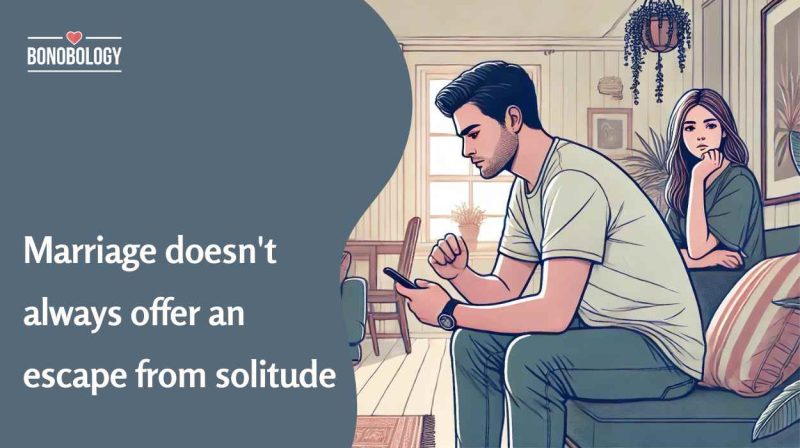






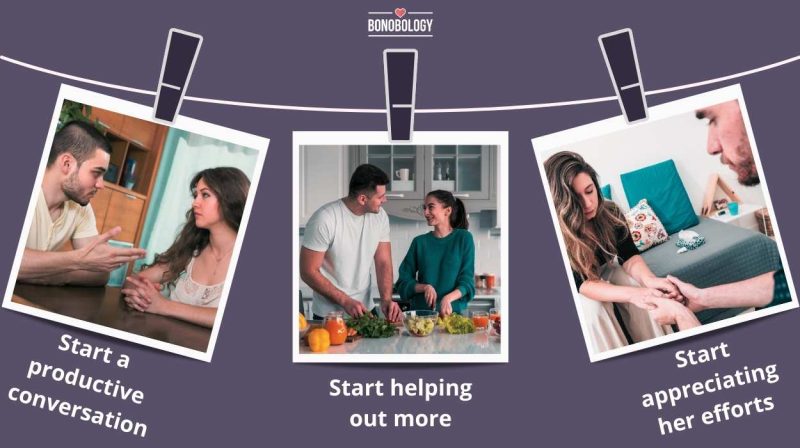



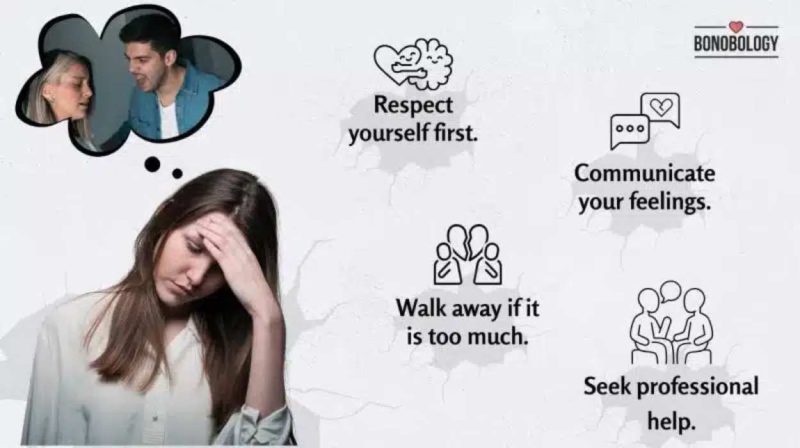


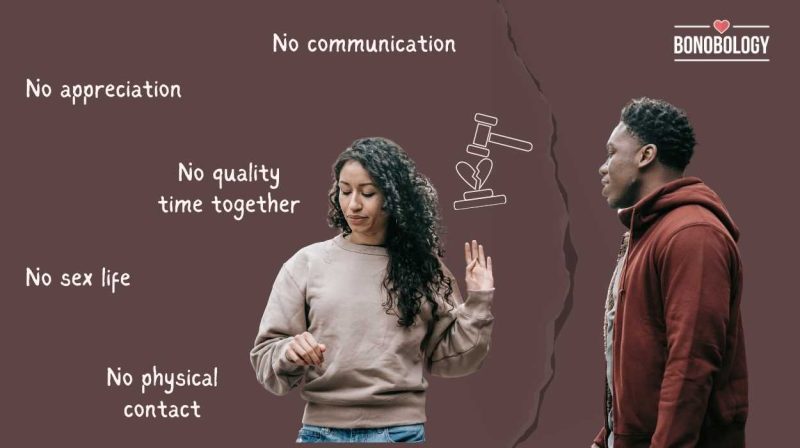
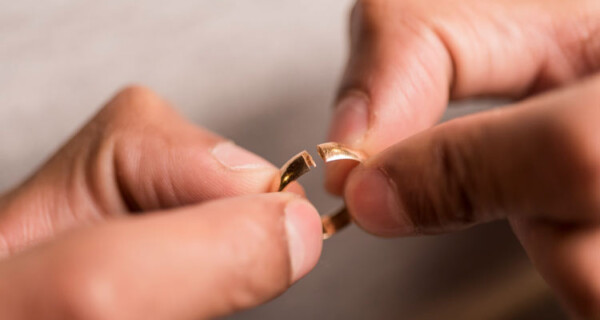



I see no mention of the manic phase where they intensely bond because they drop all the barriers they have made or break them.
The manic phase used to make me think “finally she gets it”. Actually she doesn’t. It is just that the pain of being alone eventually makes her want to rebond. Temporarily.